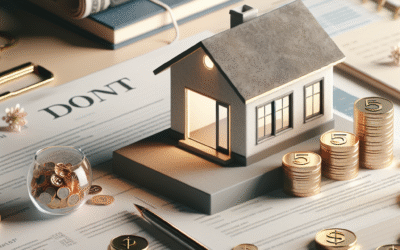how to pay off your home loan in 10 years
Owning a home is a significant milestone, but managing a home loan can be overwhelming. If your goal is to pay off your home loan in 10 years, this article will guide you through essential strategies, budgeting tips, and potential pitfalls to avoid.
Understanding Your Home Loan
Before diving into strategies, it’s crucial to understand the basics of your home loan.
Types of Home Loans
- Fixed-Rate Mortgages: The interest rate remains constant throughout the loan term. This stability can help in planning your budget.
- Adjustable-Rate Mortgages (ARMs): The interest rate can change after an initial period. While ARMs may start lower, they can increase, impacting your monthly payments.
- Interest-Only Loans: For a set period, you only pay interest, which can lead to a significant balance when the principal payments begin.
Key Terms to Know
- Principal: The amount you borrow.
- Interest: The cost of borrowing money.
- Amortization: The process of gradually paying off your loan through regular payments.
Understanding these terms will help you make informed decisions as you work towards paying off your home loan in 10 years.
Benefits of Paying Off Your Home Loan Early
Paying off your home loan early can bring several advantages.
Financial Freedom
Once your home is paid off, you can redirect funds that were previously allocated for mortgage payments towards savings, investments, or travel. This freedom can significantly enhance your quality of life.
Interest Savings
By paying off your loan early, you can save a substantial amount in interest over the life of the loan. For example, if you have a 30-year mortgage, you may pay thousands of dollars in interest. Paying it off in 10 years can drastically reduce this amount.
Strategies on How to Pay Off Your Home Loan in 10 Years
Here are effective strategies to achieve your goal of paying off your home loan in 10 years.
Make Extra Payments
- Bi-weekly Payments: Instead of making monthly payments, consider making bi-weekly payments. This results in one extra payment each year, which can significantly reduce your principal.
- Lump-Sum Payments: If you receive a bonus or tax refund, consider applying that money directly to your loan principal.
Refinance Your Loan
Refinancing can be an excellent strategy to lower your interest rate or change your loan term. Consider switching to a 15-year mortgage if your current rate is higher than market rates. This can help you pay off your home faster while potentially saving on interest.
Budgeting for Early Loan Payoff
Budgeting is essential when planning to pay off your home loan early.
Creating a Repayment Plan
- Calculate Your Monthly Payment: Determine what you can afford to pay each month towards your mortgage.
- Set a Timeline: Break down your goal into monthly or yearly targets. This will help you stay on track.
Cutting Unnecessary Expenses
Identify areas in your budget where you can cut back. Consider:
- Dining out less frequently.
- Canceling unused subscriptions.
- Shopping sales and using coupons.
These small changes can free up additional funds for your mortgage payment.
The Role of Interest Rates
Interest rates play a critical role in your loan repayment plan.
Fixed vs. Variable Rates
Fixed rates provide stability, whereas variable rates can fluctuate. If you have a variable rate, monitor market trends and consider refinancing if rates drop.
Timing Your Payments
Paying your mortgage early in the month can reduce the interest amount accrued. This strategy is particularly beneficial for fixed-rate mortgages.
How to Stay Motivated
Staying motivated is crucial for maintaining your commitment to paying off your home loan.
Setting Milestones
Set specific milestones, such as paying off 25% of your loan. Celebrate these achievements to keep your morale high.
Celebrating Small Wins
Reward yourself when you reach your financial goals. Whether it’s a small treat or a day off, recognizing your progress can boost your motivation.
Common Mistakes to Avoid
While pursuing early loan payoff, be wary of these common mistakes.
Ignoring Other Financial Goals
While it’s great to focus on your mortgage, don’t neglect other financial goals, such as retirement savings or building an emergency fund.
Overextending Your Budget
Make sure not to stretch your budget too thin in order to pay off your home loan. This can lead to financial strain and may hinder your ability to pay other bills.
Conclusion: Achieving Your Goal of Paying Off Your Home Loan in 10 Years
Paying off your home loan in 10 years is an ambitious goal, but with the right strategies and commitment, it is achievable. By understanding your loan, budgeting effectively, and avoiding common pitfalls, you can enjoy the financial freedom that comes with owning your home outright.
FAQs
- What is the best way to pay off your home loan in 10 years?
– Making extra payments and refinancing your loan are effective strategies.
- Can I pay off my home loan faster with bi-weekly payments?
– Yes, making bi-weekly payments can result in one extra payment each year.
- How much can I save in interest by paying off my home loan early?
– The amount saved depends on your loan terms, but significant savings are possible.
- Should I refinance my loan to pay it off in 10 years?
– Refinancing can lower your interest rate and help you pay off your loan faster.
- What are common mistakes when trying to pay off a home loan?
– Ignoring other financial goals and overextending your budget are common pitfalls.
- Is it worth it to pay off a home loan in 10 years?
– Achieving financial freedom and saving on interest makes it worthwhile for many homeowners.
For more information on mortgage strategies, visit Bankrate.
“`




0 Comments